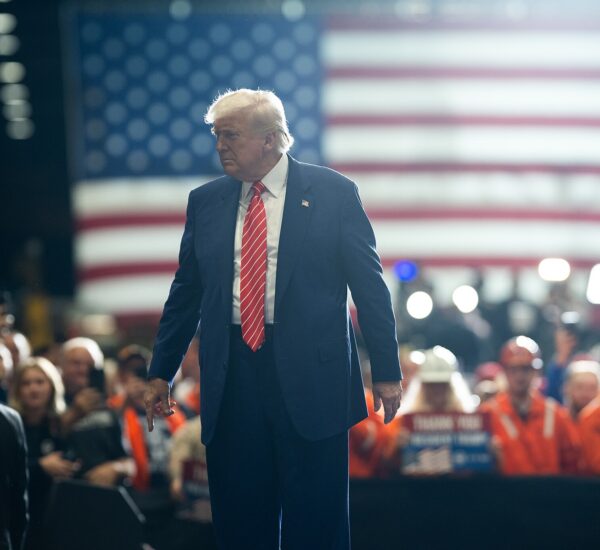Latinos Come Through Big For Trump
In the 2024 election, President-elect Donald Trump’s performance among Latino voters marked a significant shift, providing a major bright spot for Republicans. Historically, Democrats have enjoyed strong support within the Latino community, but recent trends show a marked change in political alignment—particularly among Latino men and key Hispanic groups in battleground states.
Trump’s gains with Latino voters came despite some controversy. In particular, a rally in New York City, which featured offensive remarks from comedian Tony Hinchcliffe about Puerto Rico and Latinos, sparked backlash. However, this incident did not seem to harm Trump’s overall standing with Latino voters, and in fact, the former president increased his support in critical areas. For instance, Trump flipped Osceola County in Central Florida, home to a large Puerto Rican population, a county that President Biden had won by a significant margin just four years earlier. Similarly, in Arizona, Trump showed stronger-than-expected results in Hispanic-majority counties like Yuma and Santa Cruz, though final vote counts are still pending.
A CNN exit poll revealed a narrowing of the gap between Trump and Vice President Kamala Harris among Latino voters, with Harris winning just 52% of their support compared to Trump’s 46%. This marks a significant improvement for Trump from the 2020 election when Biden secured 65% of the Latino vote, and Trump earned just 32%. Of particular note is Trump’s 12-point victory among Latino men—a stunning 35-point swing from 2020, when Biden had led by 23 points in that demographic.
Danielle Alvarez, a senior adviser to the Trump campaign, attributed this shift to the former president’s consistent stance on issues that matter most to Hispanic voters: a strong economy, lower costs, securing the southern border, and keeping American families safe. She emphasized that Trump’s approach has resonated with working-class Latino voters who are disillusioned with the Democratic Party’s policies, especially on issues like immigration and crime.
The trend of growing support for Republicans among Latino voters is not a new development. In 2022, Florida Governor Ron DeSantis saw significant success with Latino communities, particularly among Cuban and Puerto Rican voters. DeSantis secured 58% of the state’s Latino vote, including 68% of Cuban Americans and 56% of Puerto Ricans. These shifts suggest a broader realignment of Latino voters that goes beyond individual candidates to reflect a deeper ideological shift within the community.
Mike Madrid, a Republican strategist with expertise in Latino voting behavior, notes that this change is part of a longer-term trend. “What we’re seeing is the emergence of a new type of voter—one that is nonwhite, working-class, and populist in outlook,” Madrid explained. He believes that this trend is driven not only by the issues important to Latinos but also by frustration with the Democratic Party’s failure to address the concerns of many in the Latino community.
Latino voters in states like Texas and Arizona have expressed growing concern over issues like illegal immigration, with many fearing the impact of unregulated border crossings on their communities. According to a Pew Research survey, 75% of Hispanics consider the surge in illegal immigration a “major problem,” and 74% are critical of how the federal government is handling the situation. This shift in priorities reflects a broader skepticism toward the policies of the Biden administration, especially when it comes to border security.
Furthermore, there are signs that Latino voters are moving toward the GOP on other key issues, including school choice and even abortion. The Democratic Party’s longstanding assumption that Latinos will automatically support their platform is increasingly being challenged by these evolving priorities. Republicans argue that this shift is not just a movement toward the GOP but also a rejection of Democratic policies, which many Latinos feel no longer reflect their values or concerns.
As the 2024 election cycle unfolds, it’s clear that Republicans are making significant inroads among Latino voters. While the Democratic Party has failed to acknowledge these shifts, the GOP is capitalizing on them. For many, this change signals a rejection of the status quo and a move toward a more conservative, America-first agenda that addresses the real concerns of working-class Latinos. The trend is unmistakable, and if it continues, it could reshape the political landscape in ways that are more permanent than many anticipate.





